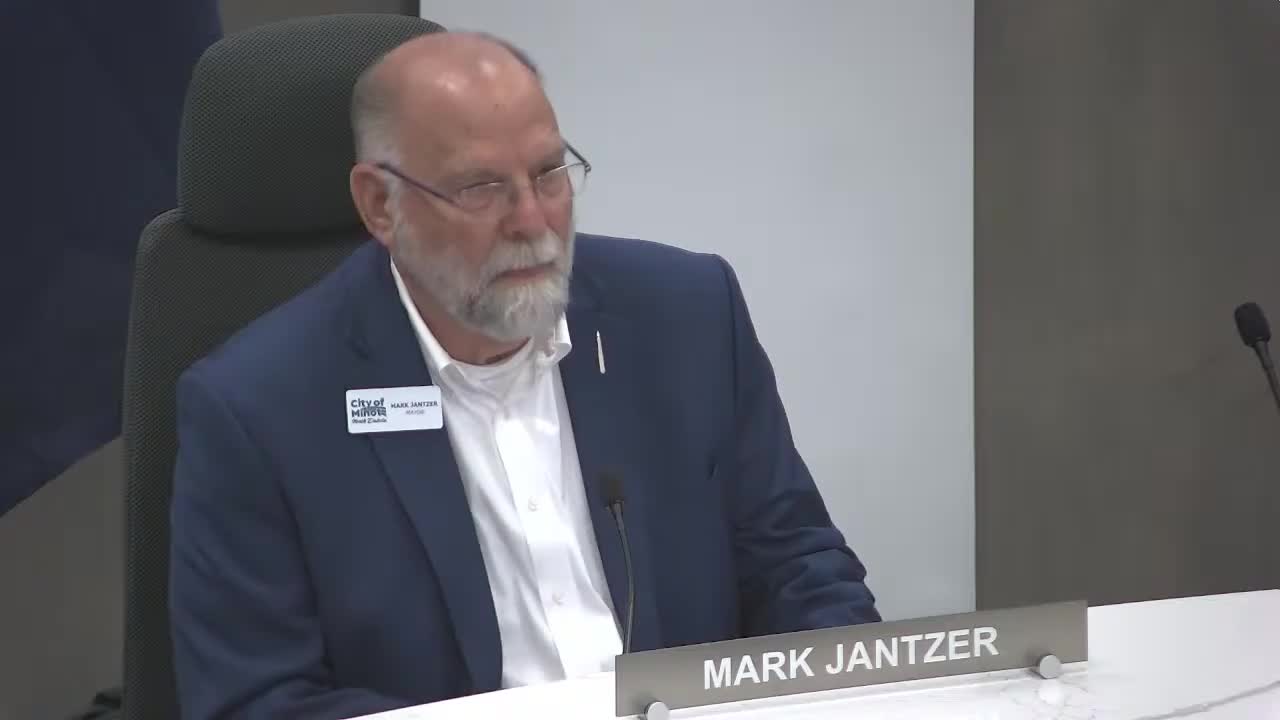MHA chairman outlines tribal history, projects and greenhouse plan in Minot visit
Get AI-powered insights, summaries, and transcripts
Subscribe
Summary
Chairman Mark Fox of the Mandan, Hidatsa and Arikara Nation told Minot council members on Nov. 3 that the tribe is investing in schools, health services, recovery programs and three major energy projects — including a CHP-powered greenhouse expected to produce about 2 million pounds of food annually, with a grand opening Nov. 26.
Chairman Mark Fox of the Mandan, Hidatsa and Arikara (MHA) Nation presented to the Minot City Council on Nov. 3, telling the council about tribal history, recent community investments and a slate of economic projects designed to rebuild infrastructure and expand local services.
Fox traced disease‑related population losses and land reductions after early treaties and executive orders, then described the tribe’s shift from agriculture to energy and service economies. “We currently produce nearly 3% of all the crude in the United States,” Fox said, describing more than 3,000 active wells and thousands more drilled historically in Fort Berthold. He framed energy revenues as one driver that enabled investment in schools, community centers and health services.
Fox described recent tribal projects, including new schools in White Shield, New Town and Twin Buttes and work on an Elbowoods Memorial Health Campus. He said the tribe is pursuing a higher‑level nursing facility and eventually a hospital to reduce reliance on outside hospitals during emergencies such as the pandemic. He also highlighted recovery programs: “More than half of the people that go to our treatment stay sober,” Fox said of tribal recovery services.
A centerpiece of the presentation was the Native Green Grove greenhouse project, a combined heat‑and‑power (CHP) facility that will capture otherwise wasted gas to produce year‑round crops and use the gas for heat, light and CO2 enrichment. Fox said phase 1 is expected to produce close to 2,000,000 pounds of food annually and invited council members to a grand opening set for Nov. 26. “We are having a grand opening on November 26,” Fox said. He added that the tribe expects federal officials and major energy investors to attend.
Fox also outlined longer‑term energy strategies: expanding crude storage capacity from roughly 300,000 barrels toward several million, continued work on LNG export pathways to foreign markets, and plans to use captured gas to power data centers, citing local climate and water resources as advantages for cooling.
The presentation closed with a ceremonial gift exchange and an invitation for questions; Mayor Janser and council members thanked Fox before moving to routine city business. The presentation provided council members an overview of tribal economic activity that the chairman said already connects to Minot through shopping, employment and shared regional markets.
